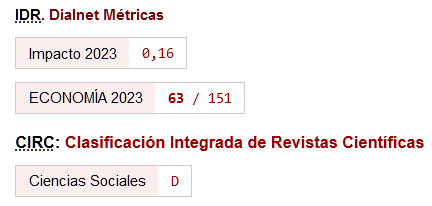La política social en la UE. Consideración especial de la política de pensiones.
Keywords:
pensions, privatization, social policy of the EU, financial capitalAbstract
This article reviews critically the reasons given since the mid-nineties to justify the privatization of public pensions, especially in relation with the European Union position. After a very short introduction about the treatment of social policy in the EU, the arguments presented by the international institutions mainly the World Bank and the EU to sustain the “unsostenibility” and crisis of the public pension systems are reviewed as well as the recommendations for reform, that consist mainly in diminishing the benefits of public pensions and favouring the expansion of private pension systems. These arguments and proposals are critically revised and the real reasons for the trend towards privatization are advanced. The conclusión being that privatization of pension systems is not justified and therefore it is not necessary but is due to the interests of financial capital and that it very seriously harms the interests of old people and the maintenance of a real social policy.Downloads
References
ADELANTADO, J. (coord..) (2000): Cambios en el estado del bienestar. Icaria/Universitat Autónoma de Barcelona. Barcelona.
BARR, N. (2001): The truth about pension reform. Finance and development. Vol.38, N.3, September.
CEMCC. (2000): Coordination Europeenne de les Marches Contre le Chomage. Nice2000. Paris.
COCHRANE, A. et al. (2000): Comparing Welfare States. Sage Publications.
GRAHL, J. (2001): Notes on financial transformation and social citizenship in the EU. Paper presented at the Seventh Workshop of the European Economists for an Alternative Economic Policy in Europe. Mimeo, Brussels.
ETXEZARRETA, M. (2002): Una panorámica crítica de la Unión Europea. Un texto de divulgación. Mimeo.
EUROPEAN COUNCIL. (2000): Conclusions of Presidency. European Lisbon Summit, 23-24 March 2000. Brussels.
EUROPEAN COMMISSION. (2001a): Proposal of Decision by the Council related to the Guidelines for Employment for the member states. Brussels.
EUROPEAN COMMISSION. (2001b): "Realising the European Union ́s potential: consolidating and extending the Lisbon Strategy" Quoted by Grahl (2001)
EUROPEAN ECONOMISTS FOR AN ALTERNATIVE ECONOMIC POLICY. Memorandum. 1997, 1998, 2000, 2001. Bremen.
L'ÉCONOMIE POLITIQUE. (2002): L'avenir de la protection sociale. Dossier. Nº.13, 1er. Trimestre.
ILO. (2002): La Reforme de pensions en Europe Centrale et Orientale. 2 volumes. ILO
HUFFSCHMID, J. (ed.) (2005): Economic Policy for a social Europe. Palgrave. https://doi.org/10.1057/9780230523395
LEANDROS, N. & LOUFIR, R. (1998): The future of pensions in Greece.
IOBELORDON, F. (2000): Fonds de pension, piège á cons? Raisons d'agir editions. Paris.
MC MORROW, K. & ROEGER, W. (2002): EU pension reform. An overview of the debate and an empirical assessment of the main policy reform options. Economic papers. European Commission. Directorate General for Economic and Financial Affairs. Nº. 162, January.
MINNS, R. (2001): The cold war in welfare. Stock Markets versus Pensions. Verso.
NEKTARIOS, M. (2000): Financing public pensions in Greece. The University of Piraeus Journal of Economics, Business, Statistics and Operations Research. Vol. 50, Nº.3-4, December.
PATRONAT CATALÀ PRO EUROPA (2002): Cap a un mercat financer europeu únic. Mimeo.
PORTE, C. DE LA & POCHET, P. (2002): "Building Social Europe through the Open Method of Coordination". P.I.E. Peter Lang, Bruxelles, Especially Introduction, Chapter 1 & Chapter 6.
RECHERCHES. L'ANNÉE DE LA REGULATION. (2000): Fonds de pensions et "nouveau capitalism". La Découverte. Paris.
WORLD BANK. (1994): Averting the Old Age crisis: Policies to protect the Old and Promote Growth. New York, Oxford University Press.
Downloads
Published
How to Cite
Issue
Section
License
This licence allows third parties to share (copy and redistribute the material in any medium or format) and adapt (remix, transform and create from the material for any purpose, including commercial purposes), provided that authorship and first publication in this journal (The Journal, DOI of the work) is acknowledged, a link to the licence is provided, and it is stated whether changes have been made to the work.







